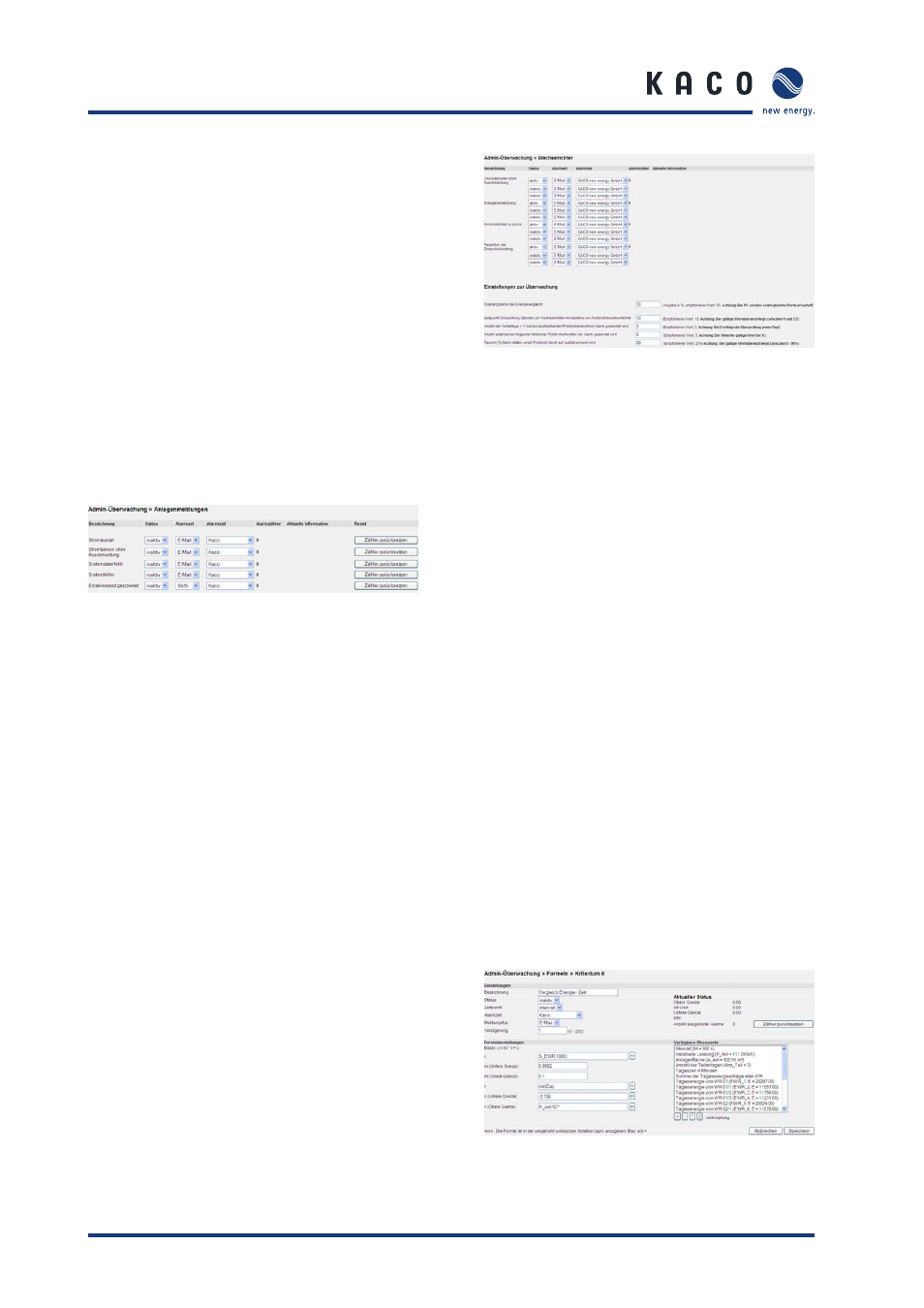KACO Powador-proLOG User Manual
Page 37

Page 38
Operating Instructions Powador-proLOG_EN
S e c t i o n 8 ·
M e n u D e s c r i p t i o n
8.5.4 System
messages
System messages only pertain to information or faults in the
monitoring system itself. You can make the following settings:
–
Status
Set this criterion to inactive or active.
–
Alarm type:
Used for logging on to or registering on the computer
that was called.
–
Alarm destination:
Indicates the contact that is notifi ed when an alarm
is
triggered.
–
Alarm counter:
Indicates how often the respective alarm has already
occurred.
–
Current information:
Indicates when the last alarm was triggered.
–
Reset:
Use the “Reset counter” button to reset the alarm
counter.
8.5.5 Inverters
This section contains settings for inverter monitoring. Alarm
notifi cation is confi gured by indicating the alarm type (fax,
e-mail, SMS) and the alarm destination (three contacts simul-
taneously).
–
Anomaly fi le is too big.
This fi le is used to record the status changes of the
inverters. The fi le is too big, because
too many status changes were recorded.
An alarm message is triggered.
–
Energy yield deviation:
Only works if the correct DC rated powers of the
inverters have been entered.
–
Inverter does not answer):
This alarm occurs when an inverter does not answer.
–
Tolerance limit for energy comparison):
This setting pertains to the “Energy yield deviation”
alarm type. The characteristic curves of the
inverters must remain within this range. The alarm
is activated when the upper or lower limit is
exceeded.
–
Time (hour) for checking whether the inverter responded
to at least one protocol):
The inverter(s) must have responded to the Powador-
proLOG
at least once by the set time. Standard value: 13
(13:00).
–
Number of winter days + 1 before an alarm is sent when a
protocol has not been answered):
–
Number of consecutive missing protocol answers before an
alarm is sent):
–
Pacmin [%] for last received protocol for detection of a
failure).
8.5.6 Formulas
This section includes settings for defi ning the various criteria
for monitoring the system.
You can defi ne the following parameters in the Settings sec-
tion:
–
Designation:
Enter the name of the criterion here.
–
Status:
Set this criterion to inactive or active.
–
Time:
Analysis on an interval/daily basis
–
Alarm destination:
Indicates the contact that is notifi ed when an alarm
is
triggered.
–
Message type:
Indicates the type of message (e-mail/fax).
–
Delay:
Indicates how many intervals/days there are to wait
before a message is issued when the criterion is in an
alarm
condition.
–
Number of triggered alarms:
Indicates the number of alarms that have been
registered.
–
Reset counter:
Use this option to reset the counter (for alarms that
have already occurred) to zero.
The formula settings are defi ned using
reverse Polish notation. An example showing how to set a
criterion is provided in section 8 (“Confi guration
Example”).
